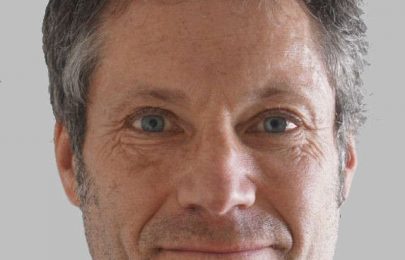Welcome Professor Wang!

We give a warm welcome to our new Guest Professor at the AI4EO Future Lab, Dr. Yuanyuan Wang. He will give continuity to the role of Dr. Peter Jung and contribute as well with his own scientific focus as co-leader of the Uncertainties lab key topic.
Guest Professor Dr. Yuanyuan Wang has worked in different chairs and projects of the Technical University of Munich (TUM), as well as in the department of Earth Observation Data Science of the German Aerospace Center (DLR). His scientific and academic focus has been mainly in the fields of Remote Sensing and EO data (in particular in SAR tomographic inversion and interferometric techniques), and signal processing.
To know more about him and about his planned contribution to the AI4EO Future Lab we have ask him a few questions, the answers to which we share below:
Thank you Professor Wang for sharing with us this time:
1. Could you please tell us what are your current research topics and interests? If possible could you explain briefly what is it about?
My current research topic is modern signal processing and machine learning algorithms, as well as big data techniques, with the application to grand societal challenges like climate change and urbanization, as well as for future Earth observation missions, such as the High Resolution Wide Swath SAR mission. For example, I am developing the so-called SAR tomographic inversion algorithm to retrieve global building height from hundreds of terabytes of TanDEM-X satellite images. I am developing this in both the transitional Bayesian estimation way and in the modern deep learning way. An interesting research direction is to find a unified theory for both approaches, and combine them.
2. You have join the lab group of Uncertainties. What highlights have you encountered upon your arrival to the group and how you would like to contribute from your academic and scientific experience from now on?
I see this group is already tackling the fundamentals of uncertainty in machine learning: finding an invertible equivalent of a machine-learning model. The enthusiasm of the colleagues in the group meeting also excited me. With my background in signal processing and estimation theory, I would like to contribute to the topic uncertainty a Bayesian approach to quantify the uncertainty in machine learning models, and a systematic approach to reduce the uncertainty when the distribution of input data does not follow the assumption, the so-called robustness.
3. Part of your interest and focus has been related to SAR techniques. Which new application related to that and AI does come to your mind as potential future research?
SAR data covers wide range of EO applications. I see in general three categories where AI can immediately contribute: land use land cover classification and segmentation, SAR image, especially SAR interferograms denoising, and inverse problems in SAR.
4. How would you describe the potential and importance of interaction of your uncertainties topic and those developed in the Reasoning and Ethics lab working groups?
My vision is that we are able to provide a demonstration and guideline of a reliable, accountable, and ethical AI, in the field of EO. Therefore, closely collaborating with the other two topics is exactly in my research agenda. I see it is relatively easy to integrate the development in reasoning and uncertainty, because they both address directly on the algorithmic level. The ethics part requires close collaboration with the colleagues. Ideally the ethics requirements can be translated into machine language, and be suitable for a wide range of AI algorithm developers.
5. In your opinion what is the biggest challenge of artificial intelligence nowadays?
The biggest challenge of AI is the political and societal level, which is how the society promotes and accepts AI. I also see a big challenge in the algorithmic level in AI4EO, which is the lack of quality training data. They are often too expensive to obtain. Therefore, unsupervised and active learning have become increasingly important in AI4EO.
8. Is there a dish that you miss most from home? Which one?
I miss the “Lotus root stuffed with sticky rice”, that is a traditional dessert in my hometown.
9. Do you find a big difference between the German and Chinese beers? Do you enjoy both equally?
Yes, also a big difference between different German beer brands. There is no better beer, but only some beers that you are used too.
Thank you for sharing with us more about yourself personally and professionally. We wish you a fruitful and pleasant time in the AI4EO Future Lab.


